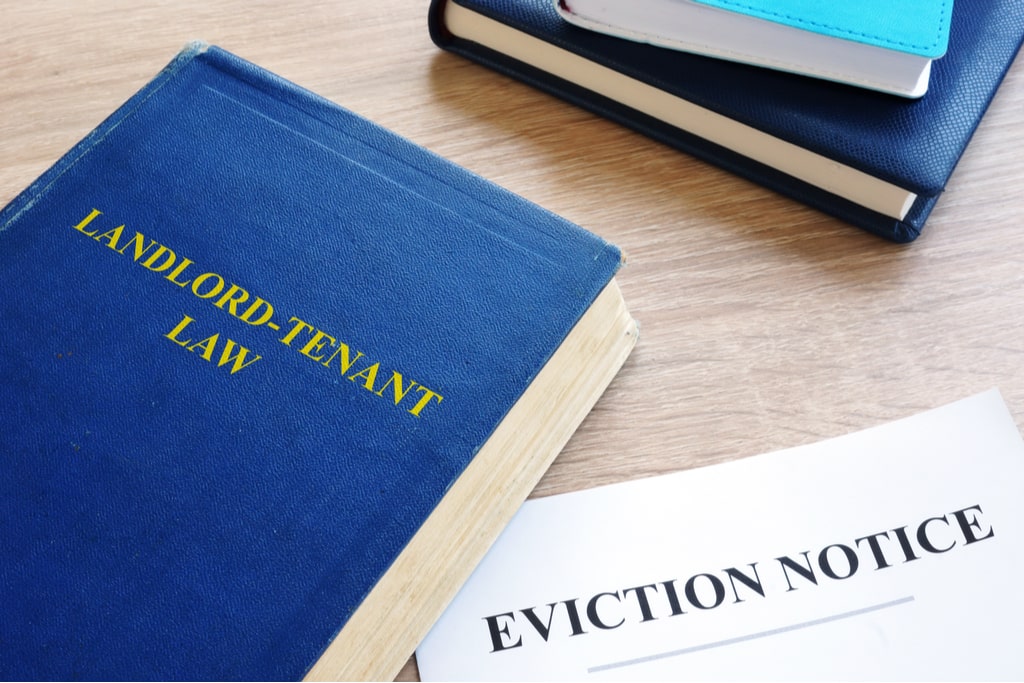
In the world of Dubai's real estate, we're going on a journey to understand the rules that govern Landlords and Tenants. One
important rule we'll focus on is the 12-month eviction notice, and the fact that it is not transferrable to a new owner.
Getting to Know Dubai's Real Estate
Dubai's real estate follows certain laws, specifically Law No. 26 of 2007 and its changes in Law No. 33 of 2008, also known as The Tenancy Law. These laws make sure Landlords and Tenants follow certain rules when renting property.
When a Landlord Can Evict BEFORE the Lease Ends
Article 25 of The Tenancy Law allows Landlords to ask Tenants to leave before the lease naturally ends. But there are specific reasons for this, and they have to tell tenants formally, usually through a letter or registered mail. Here are the main reasons for eviction:
- Late Rent: If a tenant doesn't pay rent for 30 days after being told to, the landlord can ask them to leave.
- Subletting Without Permission: If a tenant rents out the property to someone else without the landlord's permission, they can be evicted.
- Illegal Activities: Using the property for illegal activities or anything that goes against the law can lead to eviction.
- Empty Commercial Property: If a commercial property stays empty for 30 days in a row or 90 days in total during a year without a good reason, the Tenant might have to leave.
- Damaging the Property: If a tenant damages the property on purpose or through carelessness, they can be asked to leave.
- Using the Property Wrongly: If a tenant uses the property in a way that breaks the rules or the area's planning and construction laws, they might face eviction.
- Property Problems: If the property is no longer safe or needs major repairs that can't happen while the tenant is there, they may be asked to leave.
- Not Following the Lease: If a tenant doesn't follow the rules in the lease or the law, they could be evicted.
- Government Plans: If the government needs to tear down or rebuild the property for city planning reasons, eviction is possible.
When a Landlord Can Evict Upon the Expiry of the Lease “during renewal”
Article 25, Paragraph 2 of The Tenancy Law lists four situations where landlords can ask tenants to leave when the lease ends. But there's a catch: the landlord must give a written notice 12 months ahead, either through the Notary Public. Here are those situations:
- Property Changes: If the landlord wants to demolish or rebuild the property, or make changes that stop the tenant from using it, they can ask the tenant to leave.
- Major Repairs: If the property needs big repairs that can't happen while the tenant is there, the tenant might have to leave.
- Personal Use: If the landlord or their close family members want to live in the property, and they don't have another suitable place, they can ask the tenant to go.
- Property Sale: If the landlord wants to sell the property, they can ask the tenant to leave when the lease ends.
Remember, Landlords can only evict Tenants for these reasons mentioned in Article 25, Paragraph 2, and if there's a disagreement, a special committee can look into it.
Eviction Notices Can't Be Passed On to New Owners: It is not transferrable.
Several Landlords gave a 12-month eviction notice when they planned to sell the property but started the sale before the 12 months were up. According to the Rental Dispute Committee (RDC) and if this happens; the new owner must give a new 12-month eviction notice to the tenant, unless both the landlord and tenant agree to an earlier move-out date.
Whilst there are no legislations in place to allow the new owner to evict the tenant on the basis on the notice served by the previous owner, legal precedent came with different rulings either favouring owners or tenants on case to case basis. Rental Dispute Centre (RDC) rulings are not consistently applied as precedents for forthcoming decisions related to similar issues. Consequently, judgments and guiding principles concerning these same issues have the potential to vary.
Therefore, Landlords cannot guarantee the transferability of their eviction notice to new property owners (buyers) if they choose to sell the property before the eviction notice period reaches its conclusion. In such cases, it is advisable for landlords to encourage and provide guidance to the new property owner (buyer) to delay the property's acquisition until the eviction notice period has fully expired. Alternatively, new buyers should be informed that, upon acquiring the property, they are encouraged to initiate a new 12-month eviction notice as per the legal requirements.
Understanding the rules for landlords and tenants in Dubai's real estate market is vital, and it can help everyone involved navigate the system more easily.
For further insights or to address any queries on any of our conveyancing services, you may connect with our Sales Progression Officers/Conveyancers team at 00971588229107 or +971 52 983 0430 or email at contracts@famproperties.com or dalia@famproperties.com. You can also explore our comprehensive services on our official fam Conveyancing website.